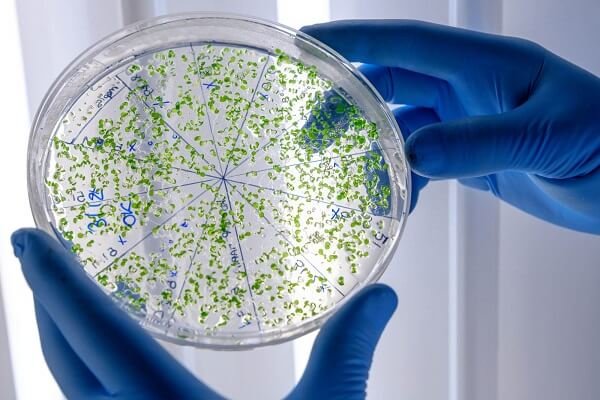Ayurvedic Treatment For Bacterial Vaginosis
Bacterial vaginosis (BV) is a common vaginal infection caused by an imbalance of bacteria in the vagina. The vagina normally contains both good and harmful bacteria. Ayurveda has given the best and most effective solution to treat this vagina infection with the power of natural herbs and ayurvedic therapies.
So, at Dr. Gupta's Clinic, we understand that bacterial vaginosis is an uncomfortable vaginal infection that can have significant impacts on a woman's reproductive health. That's why our experienced Ayurvedic practitioners offer personalized Ayurvedic treatment for bacterial vaginosis based on the principles of Ayurveda.

What Is Bacterial Vaginosis?
Bacterial vaginosis is a vaginal infection experienced by many women. It occurs when the natural balance of bacteria in the vagina is disrupted. Normally, the vagina contains a delicate balance of bacteria, including beneficial bacteria that help to keep the vaginal environment healthy and free of infections.
However, when the balance of bacteria is disturbed, harmful bacteria such as Gardnerella vaginalis can overgrow and cause an infection. The exact of Bacterial vaginosis cause is not fully understood, but certain factors can increase the risk of developing the infection, including douching, having multiple sexual partners, and using certain antibiotics.
While bacterial vaginosis is not usually a serious condition, it can cause discomfort and lead to complications if left untreated, such as pelvic inflammatory disease or an increased risk of contracting sexually transmitted infections.
Causes And Symptoms Of Bacterial Vaginosis
Bacterial Vagiosis is more common in women of reproductive age, and risk factors include douching, multiple sexual partners, and using certain types of contraceptives, which can cause vaginal discharge and itching.
Common Signs And Symptoms Of Bacterial Vaginosis
Bacterial vaginosis (BV) is a common vaginal infection that occurs due to an imbalance of bacteria in the vagina. Some of the common bacterial vaginosis symptoms include:
- Abnormal vaginal discharge: A thin, grayish-white, and foul-smelling discharge is one of the most common signs of bacterial vaginosis. The discharge may be more noticeable after sexual intercourse or during menstruation.
- Vaginal odor: A strong fishy odor, especially after sexual intercourse or washing, is a typical symptom of bacterial vaginosis.
- Vaginal itching or irritation: Some women with bacterial vaginosis may experience itching or irritation in the vaginal area.
- Burning during urination: Some women with bacterial vaginosis may experience burning or discomfort during urination.
- Pain during sexual intercourse: Women with bacterial vaginosis may experience pain or discomfort during sexual intercourse. This can be a common symptom of BV.
It is crucial to consider that not all women with bacterial vaginosis experience symptoms. Some women may have no symptoms at all, and the infection may go unnoticed until detected during a routine gynecological examination. So, if you suspect that you have bacterial vaginosis, it is essential to seek a gynecologist for appropriate diagnosis and ayurvedic treatment of bacterial vaginosis.
Common Causes Of Bacterial Vaginosis
Bacterial vaginosis (BV) occurs due to an imbalance of bacteria in the vagina. While the bacterial vaginosis causes are not entirely clear, several factors can contribute to its development. Some of the common causes of bacterial vaginosis include:
- Overgrowth of certain bacteria: BV occurs when there is an overgrowth of certain bacteria in the vagina, including Gardnerella vaginalis, Atopobium vaginae, and Mycoplasma hominis.
- Sexual Activity: Sexual activity, particularly with a new partner, can disrupt the natural balance of bacteria in the vagina and increase the risk of bacterial vaginosis.
- Douching: Douching, or the practice of rinsing the vagina with water or other substances, can disrupt the natural balance of bacteria in the vagina and increase the risk of BV.
- Antibiotics: Antibiotics can disrupt the balance of bacteria in the vagina and increase the risk of BV by killing off both harmful and beneficial bacteria.
- Hormonal Changes: Hormonal changes, mainly during pregnancy, can increase the risk of BV by altering the natural balance of bacteria in the vagina.
Our experienced sexologists state that any woman can develop an infection. So, if you are also one of them, you must consult an experienced doctor for the ayurvedic bacterial vaginosis treatment. Our holistic approach will help you overcome BV naturally with the power of Ayurveda.
Ayurvedic Bacterial Vaginosis Treatment At Dr. Gupta's Clinic
Dr. Gupta's Clinic offers personalized and natural Ayurvedic treatments for bacterial vaginosis that aim to promote overall health and wellness through natural remedies and therapies. Our experienced practitioners use the principles of Ayurveda to address the underlying causes of bacterial overgrowth and promote a healthy reproductive system for women.
We recognize that every woman is unique and may require a personalized treatment plan based on her specific needs and imbalances. That's why our practitioners thoroughly evaluate the patient's overall and vaginal health to determine the underlying cause of bacterial overgrowth, which could lead to bacterial vaginosis. Once the cause is identified, our sexologist recommends natural and effective Ayurvedic therapies to promote a healthy reproductive system and combat bacterial infections. Our Ayurvedic medicine for bacterial infection includes herbs and remedies that have been used for centuries to support vaginal health and restore balance to the microbiome.
Our Ayurvedic treatments for bacterial vaginosis include Panchakarma, which is a cleansing treatment that helps remove toxins from the body and promotes overall health, including vaginal health. In addition to providing effective treatment, our Ayurvedic doctors also offer guidance on how to prevent bacterial vaginosis. This may include herbal remedies, dietary changes, and specific yoga poses that can help maintain a healthy vaginal environment and prevent the overgrowth of harmful bacteria.
Our Ayurvedic Remedies For Bacterial Vaginosis At Dr. Gupta's Clinic
Ayurveda offers several natural remedies and treatments to help manage and treat bacterial vaginosis. Therefore, our sexologists include the following factors in developing a treatment plan for Bacterial Vaginosis (BV):
- Herbal Remedies: The herbal medicine for bacterial vaginosis suggested by sexologists at Dr. Gupta's Clinic include Triphala, Neem, Amla, and Turmeric, which possess antibacterial, anti-inflammatory, and immune-boosting properties. These herbs can be taken orally or used as vaginal washes to help restore the natural balance of bacteria in the vagina and prevent bacterial vaginosis.
- Dietary Changes: For improving women's reproductive health, our Ayurveda specialists suggest eating a healthy and balanced diet that includes plenty of fresh fruits and vegetables, whole grains, and lean proteins can help boost the immune system and promote overall vaginal health. They may also recommend avoiding spicy, acidic, or processed foods as they can worsen the symptoms of bacterial vaginosis.
- Lifestyle Changes: Including exercise, yoga, and meditation in your daily schedule can help reduce stress and promote overall health and well-being, including vaginal health. Reducing stress levels can also help prevent the development of bacterial vaginosis. So, our sexual health specialists at Gupta Clinic include lifestyle modifications in the ayurvedic treatment for Bacterial Vaginosis.
- Ayurvedic therapies: Ayurvedic practitioners may recommend therapies such as Panchakarma. It is a cleansing treatment that helps remove toxins from the body and promotes a female's reproductive health.
Contact Us For Ayurvedic Bacterial Vaginosis Treatment
So, to book an appointment with our experienced sexologists for Ayurvedic Bacterial Vaginosis treatment, call at +91-9830403000 or email your query to drguptasclinic@gmail.com.
